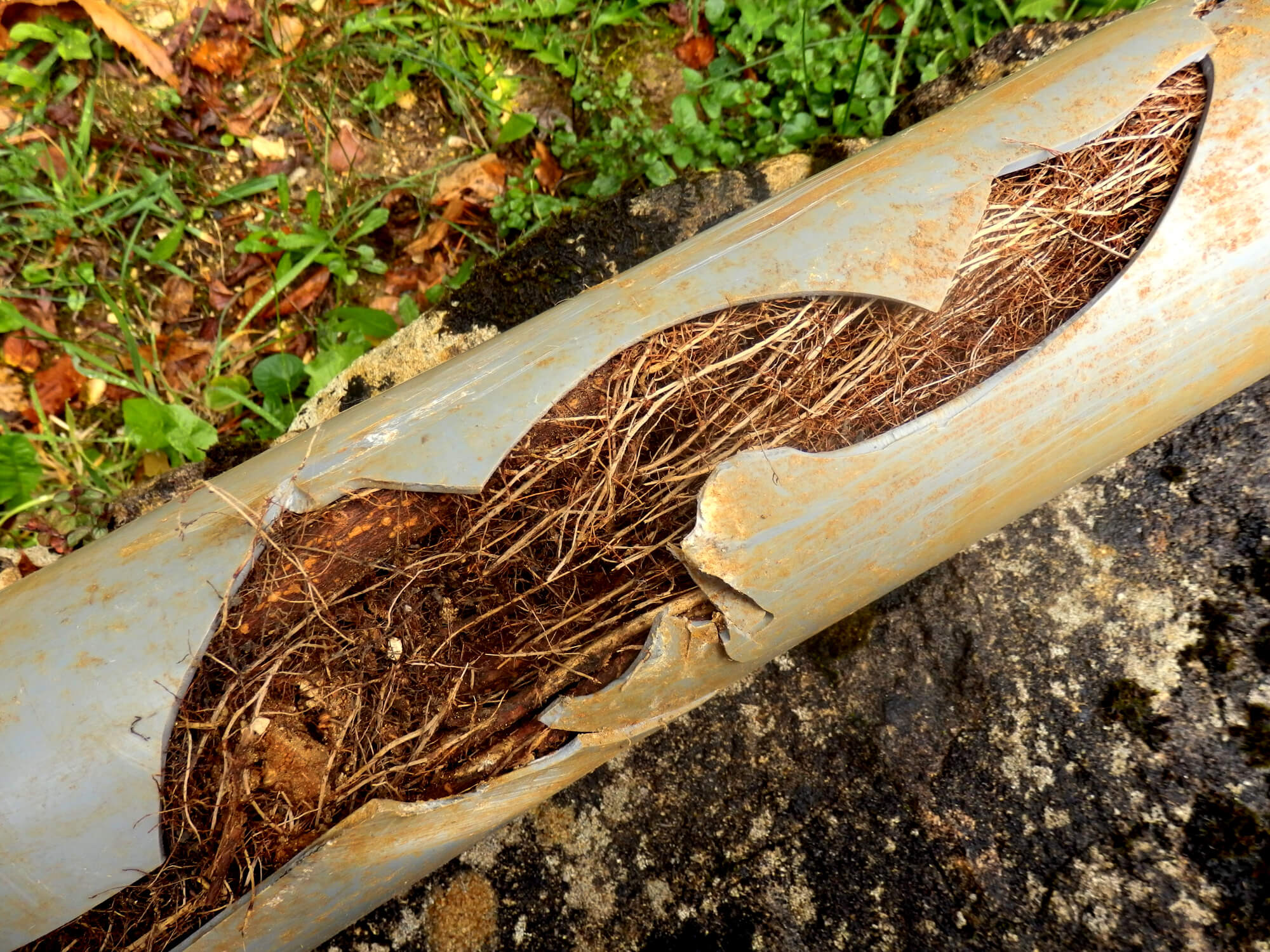If you’ve ever dealt with a slow-flushing toilet or backed-up sink, then you know how awkward and messy a clogged sewer line can be. Sewer clogs impede proper drainage and eventually cause material waste to flow the opposite way, towards the drain. Clogs can also cause pipes to corrode and water pressure to drop, causing further damages to the sewage plumbing.
Learn more about what is clogging your sewage system, and how to prevent clogs from happening in the first place. Has your plumbing stopped working? Contact us right away to schedule plumbing repairs.
What Is Clogging My Sewer?
Sewer line clogs can happen for several reasons, the most common being accumulated debris inside the main sewer line. Debris may come from the household’s drains when residents flush trash or dispose of grease by pouring it down the drain. Debris may also come from outside in the form of tree and shrub roots. The following includes some of the most common clog-causing issues to look out for. Think you have a clogged sewer? Contact us right away to schedule a professional sewer line cleanout services.
Flushing Trash Down The Toilet
By far, the most likely culprit behind a clogged sewer is accumulated trash inside the sewer’s piping. In particular, non-flushable materials, such as baby wipes, medications, and plastic wrappers, can remain inside the home’s plumbing without breaking down indefinitely, causing the line to clog. The combination of these materials can also wear and corrode pipes over time. To remediate damaged piping, the homeowner will need to schedule a sewer line replacement.
To ensure your sewage lines remain in working condition, avoid flushing anything down the toilet besides human waste and paper. Be wary of using so-called “flushable wipes” as these are wrongly labeled and do not break down the same way paper does.
Pouring Grease Down The Drain
Similar to flowing away trash, pouring grease down the drain can result in sewage blocks and even appliance breakdowns. Oils and animal-derived fats may be in liquid form when disposed of, but once inside the cold sewage pipes, it hardens and accumulates, blocking the path for sewage to flow. In addition, when combined with bacteria and other debris inside the pipes, buildup grease can cause mold to grow and a musty, rotten-egg smell to emerge from the drain.
To properly dispose of grease, pour the used oil or animal fat in a heat-proof container and wait until it hardens. Once solid, simply throw the grease in the trash bin. Alternatively, you can collect unseasoned, used grease in an air-tight-sealed container, and store away for later use.
Roots In Sewer Line
One issue which is often overlooked when determining the cause of a sewage clog is tree-root damage. When tree and shrub roots grow, they grow towards sources of water in the soil, including sewage-holding pipes. Given enough time, roots can latch on to sewer pipes and eventually make their way inside, causing a sewage clog. Older sewer lines constructed out of clay and similar porous materials are more susceptible to tree-root damage.
Some tree species have faster-growing roots than others, making them particularly hazardous for sewer piping. These damage-causing trees include Willows, Hybrid Poplars, American Elms, and Silver Maples. To protect your sewer system from tree-root damage, relocate all fast-growing trees at least 10 feet away from all sewer lines. In the future, plant slow-growing trees, such as Dogwoods, Crabapples, Gingkos, and Smokes.
Sagging Sewer Line
Under certain conditions, the ground supporting a sewer line can sink or shift around, causing the pipe above to lose stability and drop. The result is a sagging section in the sewer line or “belly,” as it is often referred to as by plumbers. Over time, a belly in a sewer line can disrupt sewage flow, accumulate debris, and clog the main sewer line.
While sagging pipes are generally out of the homeowner’s control, you can prevent the issue from escalating by ensuring no one in the household flushes trash or grease down the toilets and drains.
How Do You Clear A Clogged Sewer Line?
To avoid costly repairs and damages to your property, schedule professional plumbing services sooner rather than later. Even a minor issue in one section of a sewer line could eventually lead to damages in other parts of the sewage system — prompt repairs are key to reliable drainage!
Schedule A Video Camera Pipe Inspection
The most effective way to determine the cause of a clogged sewer is by using video cameras to get a closer look at the inside of the sewer pipes. As the leading plumbing company in Gainesville, we specialize in video camera pipe inspections to provide our clients with the best results for their property!
